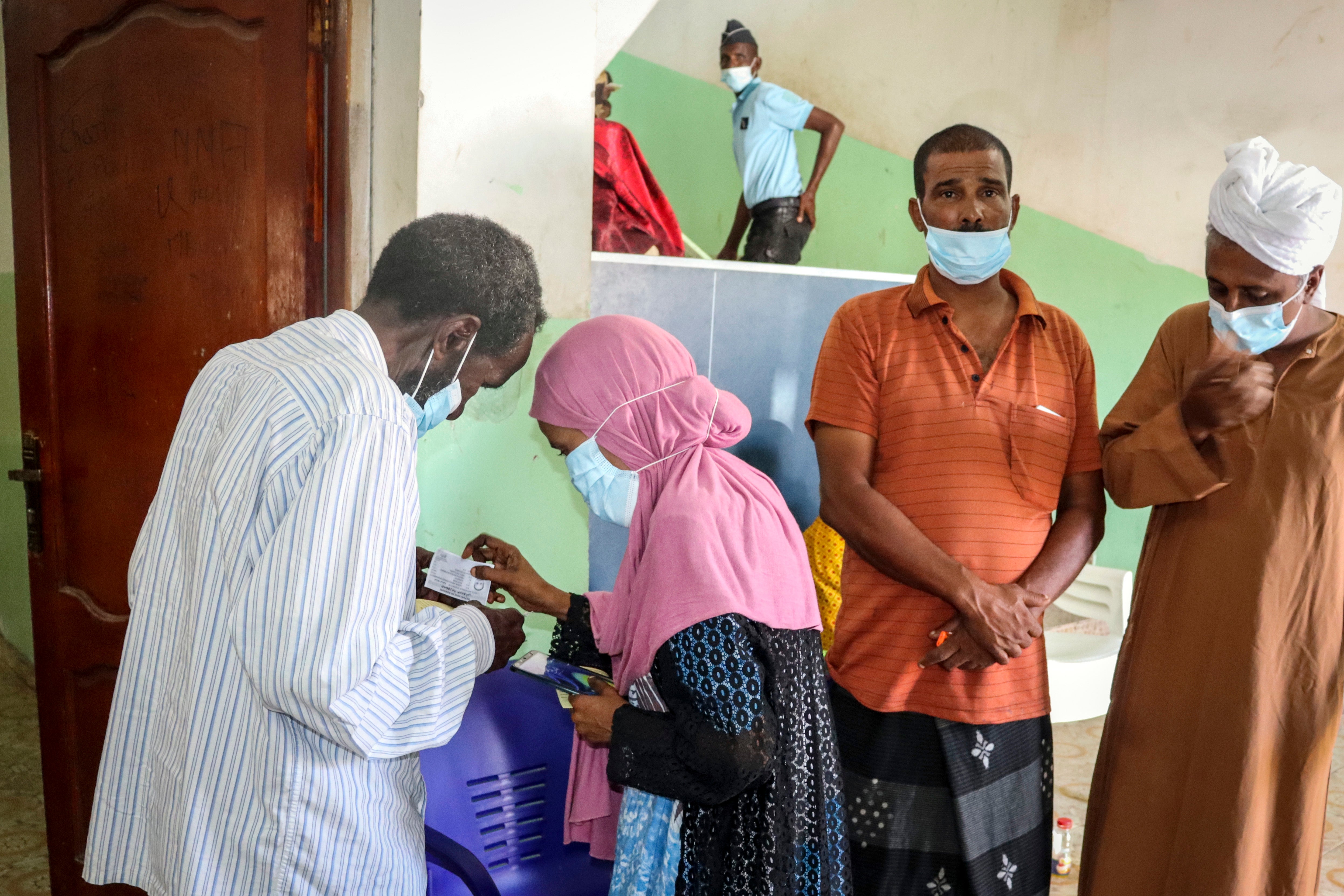Djibouti votes as president Guelleh seeks a 5th term
The Horn of African country of Djibouti went to the polls peacefully on Friday as President Ismail Omar Guelleh seeks a fifth term in the small but strategically important nation home to military bases for the United States, China and others

Your support helps us to tell the story
From reproductive rights to climate change to Big Tech, The Independent is on the ground when the story is developing. Whether it's investigating the financials of Elon Musk's pro-Trump PAC or producing our latest documentary, 'The A Word', which shines a light on the American women fighting for reproductive rights, we know how important it is to parse out the facts from the messaging.
At such a critical moment in US history, we need reporters on the ground. Your donation allows us to keep sending journalists to speak to both sides of the story.
The Independent is trusted by Americans across the entire political spectrum. And unlike many other quality news outlets, we choose not to lock Americans out of our reporting and analysis with paywalls. We believe quality journalism should be available to everyone, paid for by those who can afford it.
Your support makes all the difference.The Horn of African country of Djibouti went to the polls peacefully on Friday as President Ismail Omar Guelleh seeks a fifth term in the small but strategically important nation home to military bases for the United States, China and others.
The 73-year-old Guelleh faces just one challenger, the independent candidate and businessman Zakaria Ismail Farah, who halted campaigning early while asserting that he could not do so in safety. In protest, he appeared with his mouth taped shut.
The other opposition boycotted the vote. Final results are expected on Saturday. There was a heavy police presence around the polls.
Critics call the president a heavy-handed dictator, but others in Djibouti see him as a driving force in the country’s development and relative stability. The country is located on the Red Sea along one of the world’s busiest shipping lanes.
Guelleh has been in power since 1999 after the death of his predecessor, Hassan Guled Aptidon, the country’s first president. Djibouti won independence from France in 1977.
The president is widely expected to win another team that should be his last, according the constitution, which limits the presidency to those under the age of 75.
Guelleh told reporters days ago that he was no longer interested in power but was merely responding to the will of the people.
“it is my people, the Djiboutians, who asked me to run again and not leave them for the sake of the prosperity of the nation,” he said.
After voting, the president said, “May God be praised, it happened in a peaceful way and thank God, the people have participated in a very good way.”
More than 205,000 people are registered to vote in Djibouti, which has a population of over 600,000. The country is a mix of ethnic Somali, Afar and Arab.
“In a beautiful way we’re appreciating the voting, every vote and every five years, and today it happened in a beautiful way,” said one person at the polls, Naima Yusuf Kahin.